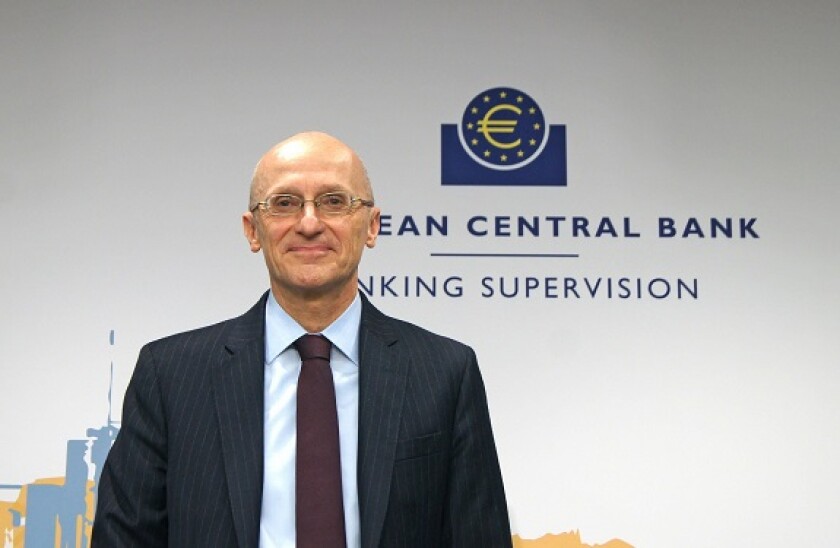Experts have started coalescing around the idea that bank capital buffers are not working like they should.
Lenders had enough resources to withstand the initial shock of the Covid-19 pandemic, thanks to the design of the Basel III framework.
But alarm bells started ringing when supervisors realised they might struggle to convince banks to run down their capital ratios to make more loans to struggling borrowers.
Part of the problem is that financial institutions don’t want to come into conflict with hard and fast rules preventing them from making distributions to their investors.
If they were to eat through certain buffers over their minimum requirements, they would be forced by law to calculate their maximum distributable amounts (MDAs).
This could lead to the cancellation of additional tier one (AT1) coupons, as well as restrictions around the payment of employee compensation and shareholder dividends.
These sorts of perverse incentives, encountered in the wake of the coronavirus pandemic, are likely to lead to a redesign of the post-crisis rules on bank capital.
Within the EU, two solutions have already gained prominence.
The first considers a move away from a system where an MDA breach results in automatic consequences for banks, towards a more case-by-case approach.
And the second, which could work in tandem with the first, suggests placing more emphasis on targets like the countercyclical capital buffer (CCyB), which can be easily released in times of stress.
Clearly, there is a focus on flexibility in each of these proposals, which normally points towards more discretionary powers being given over to supervisory authorities.
Indeed, the ECB looks as though it could emerge as the big winner from any reworking of capital buffers in the EU.
Moving away from a rigid set of MDA rules would almost certainly mean letting the Single Supervisory Mechanism (SSM), the framework which grants the ECB licensing powers over banks, decide what happens in the event of a trigger breach.
And it is hard to imagine how there could be a greater role for CCyBs without the ECB taking on more responsibility for setting the requirements.
At the moment, national competent authorities are in charge of moving CCyBs up and down. But the system has already encountered problems, as José Manuel Campa, chairperson of the European Banking Authority, explained in a speech on Monday.
Going into the Covid-19 crisis, only a handful of member states had already asked banks to build up their countercyclical capital reserves.
“The question is whether we should also harmonise the way these buffers are deployed,” Campa said.
It is perhaps to the SSM’s credit that investors appear to like the idea of giving it more discretion over the rules.
They seem to be less concerned about how the ECB will make decisions and more concerned about falling foul of some kind of mishap resulting from the strict application of an overly complex rulebook.
As one portfolio manager put it: “We don’t need a ‘quick fix’. We don’t need a Basel V. What we need is a more flexible capital stack.”

